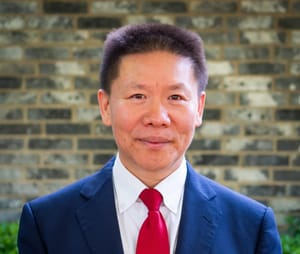The Supreme Court of British Columbia, in Canada, has allowed a 14-year-old girl to be injected with hormones to change her gender — against her father’s wishes.
And the court has ruled, if the father does not refer to his daughter’s new chosen male name or her preferred pronouns, it ‘shall be considered to be family violence’ under the Family Law Act.
‘The government has taken over my parental rights,’ the girl’s father said, ‘They’re using [her] like she’s a guinea pig in an experiment’.
The child, who cannot be named for legal reasons, was encouraged by her school counsellor to identify as a boy while in seventh grade.
When she was 13 years old, doctors at British Columbia Children’s Hospital decided that she should begin taking testosterone injections in order to develop a more masculine appearance.
The girl’s mother eventually supported the hormone injections, but her father was worried about the long-term consequences of the controversial treatment.
He suspected his daughter’s mental health issues may be more of the cause — rather than the effect of — her gender dysphoria.
He believed it would be better for her to wait until she was older before she embarked on any irreversible course of treatment.
It was at this point that doctors informed the girl’s father that the treatment would proceed — with or without his consent. So, the father sought a legal injunction, which is how the case ended up in court.
But judges ruled the girl is ‘exclusively entitled to consent to medical treatment for gender dysphoria’, regardless of the opinions of either of her parents.
The court also ruled that ‘Attempting to persuade [the girl] to abandon treatment for gender dysphoria; addressing [the girl] by his birth name; referring to [the girl] as a girl or with female pronouns whether to him directly or to third parties; shall be considered to be family violence under section 38 of the Family Law Act’.
The girl’s father said, ‘These activists are taking over, and it’s not in the interests of our kids. It’s in the interests of self-promotion and the things that they want to do and accomplish’.





















